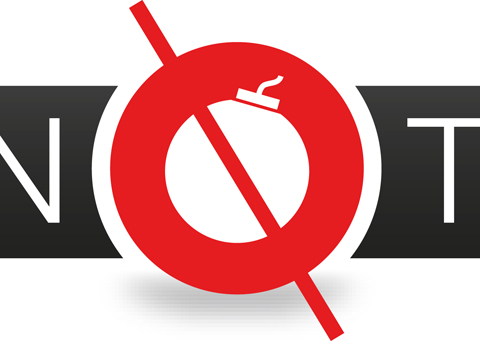
9/11 and media
What Al-Qaeda achieved on 9/11 was arguably not only the most extreme and effective terrorist attack ever carried out, but also a highly effective media spectacle with unprecedented return on investment. The loss of human life aside, Al-Qaeda was known all over the world within hours, at the cost of eleven airline tickets and some box-cutters. Indeed, Al-Qaeda, like other terrorist organizations, could count on the readiness of the world media to broadcast their acts to the world live on television and the internet, as well as in print.
When it comes to raising your media profile, being a terrorist definitely has its advantages. After all, it took companies like Coca-Cola decades and billions of dollars to become as well-known as Al-Qaeda. And while businesses have to make sure that their commercials comply with standards of public decency, terrorists have no such restrictions. An exposed breast in a Super Bowl half-time show is considered unacceptable, but having kids watch human beings desperately jump from a burning skyscraper is treated as if it is.
Fighting terrorism at its roots: The only approach?
It is a widely accepted belief that the only way to fight terrorism is at its roots. Radicalization of any kind develops where masses of people lack the basic prerequisites to lead a decent life. But fighting terrorism at its roots is a long-term political and economic challenge. It requires a readiness to invest in countries and regions where corruption is widespread, and where there is no guarantee of success. I am neither a political scientist, nor a politician, but I wonder whether this approach to fighting terrorism is the only way to go.
My own experiences as a primary school teacher have taught me that undesirable behavior is only repeated if it leads to its desired effect. This is one of the key insights of education, when it comes to dealing with difficult kids “terrorizing” the classroom. Whether it’s regularly hitting other kids, putting your feet up on the desk, using inappropriate language or simply not remaining in your seat – each of these negative behaviors only works if the teacher reacts as intended. Not rewarding the wrong behavior with special attention is a proven method of stopping it, even if it requires the teacher to have nerves of steel, and supervisors not to misinterpret the teacher’s approach as an inability to maintain basic discipline and order.
What works to minimize unwanted behavior in the classroom might also work with much more harmful behavior, on the scale of terrorist activity. Just imagine the spectacle of 9/11 not having been aired so promiscuously across the globe. The collapse of the twin towers and the other events of that day would probably have received less attention than they did, which would have dramatically reduced the effectiveness of the terrorist agenda. Of course, 9/11 may be an exceptional case, as the incident was almost certainly too big to be concealed. The world had a right and need to know!
But still — it raises the question: is there a way to reduce the “spectacle” value of terrorist attacks for those who plan and pursue them?
Two simple media rules to reduce the strategic value of terrorist acts:
1. Limit or completely renounce coverage of terrorist acts
2. Never mention the name or the goals of any organization carrying out terrorist acts
Would 9/11 ever have happened if these admittedly difficult rules had been in place prior to the attacks and known to Al-Qaeda? Would it have been attractive to plant bombs and shoot nearly a hundred innocent young people in Oslo, if the attacker’s identity and weird political ideas would not be communicated internationally for free? Would it have been of any use to attack and kill more than a hundred people at various locations in Bombay, including the central train station and the Taj Mahal Palace hotel, to attack a cricket team in Lahore, or even to plant one more roadside bomb somewhere in Iraq or Afghanistan, if the media hardly or only very restrictively reported it? The answer could be no.
The idea of LNOTA
If less reporting on terrorist acts would help diminish them, then how about a self-imposed media label — LNOTA, standing for “Limited News on Terrorist Acts,” according to the rules above? The use of this label by leading news media outlets might discourage terrorists and make room for news on more constructive political dialogue.
Are such restrictions remotely realistic?
Freedom of the press is sacrosanct in most modern countries and is an important cornerstone of democracy. Any limitation of news coverage is highly problematic, and any movement towards censorship understandably alarming. In the case of limiting reporting on terrorism three questions might be central:
1. Who defines whether an act qualifies as terrorism or not?
While terrorism is by definition bad, it may sometimes be perceived as a necessary measure to end occupations and overthrow unjust elites. One man’s terrorist is another man’s freedom fighter. Great care has to be taken that legitimate activities carried out by suppressed peoples do not fall under the proposed self-censorship of media. Or else dictatorships could far more easily silence political opposition simply by labeling their activities as terrorist in nature, something we have already begun to see in several countries in northern Africa, and now in Syria.
2. How can the international community fight terrorism, without news on it?
Fighting the roots of terrorism requires us to know where and how it grows. Seen in this light, it is necessary to know about Al-Qaeda and the countries and regions where it draws its support. But do we need broad media coverage of terrorism for this? – Perhaps not, since intelligence services all over the world are busy gathering information about terrorist threats. Knowledge is indeed available to security experts in governments. The true challenge lies in responsibly filtering and assessing the information.
3. Why should any TV station or newspaper limit its reporting of terrorist acts?
Quite frankly: I don’t know. Running a media business — and yes, media is a business, despite its widely acknowledged mission to serve the the public — means profiting from up-to-date news on whatever is spectacular, whether politically motivated or not, in Afghanistan or Iraq, or on a holiday island or school compound. From a business point of view, the acknowledgment that merely covering terrorism contributes to its aims and agenda might be one of the only compelling reasons not to cover it. Unless audiences are, in fact, sick and tired of regular news on terrorist activities.
LNOTA: A dream?
This blog is not meant to provide complete answers. But, if media cannot face the truth – that spectacle is a key component of mass terrorism, and that the media helps generate that spectacle – then some half-steps towards the idea of LNOTA might be possible.
LNOTA could stand for the following set of minimum principles when reporting on terrorist acts:
- In general, deliberately neutral language should be used to describe terrorist groups, avoiding romanticization of their aims, objectives, or members.
- When it comes to the coverage of specific terrorist acts, however, the media should stress the underlying private, selfish motives of terrorist leaders, as well as the damage caused by their actions to those they pretend to fight for.
- If and when the goals or objectives of terrorist groups are covered, specific terrorist acts need, above all, to be publicly condemned as barbarous and cowardly violations of basic human rights.
These minimum principles of LNOTA may not be as comprehensive as they could be in terms of minimizing the coverage of terrorist acts, but they can definitely help diminish the ‘spectacle value’ of terrorism, while preserving a free and uncensored press at the same time.
Maybe a news channel or newspaper could pick the idea up? Figuring out how to hack into someone’s mobile phone was probably difficult. Dealing with how to responsibly report on terrorism represents a real challenge.


